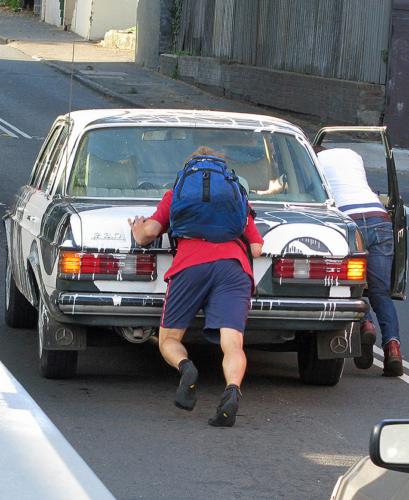The practice of cultivating altruism has a beneficial effect not only from a religious point of view but also from a mundane point of view. – Dalai Lama
What does that mean?
At theFreeDictionary.com, altruism is defined as “Unselfish concern for the welfare of others; selflessness.” So this saying, using a substitution becomes “The practice of showing concern for others provides benefits both the religious and mundane aspects of your life.”
Being concerned for others has its place in many religions. While acknowledging that, he goes on to state that it is beneficial to you in your mundane life as well. The benefits on the religious side are between you and your religion. The benefits on the mundane side, they are many, and vary from person to person. They can include feelings of self-worth, satisfaction and a warm, happy feeling inside.
Why is altruism important?
When you do something for another person, you generally feel much better. As I mentioned before, there are many good feelings that come from altruism. What are yours? Take a moment to think about how you feel when you help someone else.
Altruism has been a human trait for quite a long time. Unfortunately, it is often reserved for a select few. Usually that has been the members of your society or community. Whether that is defined by religious, familial, tribal or ethnic bonds, it’s easiest to help those with whom you share a common bond.
What does altruism do for a society or a community? Altruism helps lift the less fortunate and get them back on their feet. Back in the days before government run social programs, this service was provided by charitable institutions, usually with a religious affiliation.
By helping the less fortunate back to their feet, they can become productive members of society and, in turn, help others. Altruism is a great way to help keep a society moving forward without leaving anyone behind.
Where can I apply this in my life?
There are probably a zillion programs in your area. OK, perhaps not that many, but if you check you local yellow pages, municipal government or your favorite search engine, you should be able to make a list of more charitable organizations than you could possibly help.
The first question I would ask is “What does my area lack?” What services are lacking or insufficient in your area? Grab some paper and make a list of a couple of things you think your area could use help in. Look for groups that already try to help in that area, and talk to them. Attend a meeting and see if your desire to help is comparable with theirs. Not everyone fits in every organization.
What if there isn’t any groups in your area that provide the help think the area needs? That depends on how good your organizational skills are, because you are going to have to find something and run it on your own.
This may sound daunting, but it can be done. Mother Teresa started her order as a ‘free nun’ with no help or sustenance from the church. She begged for all she got, but managed to make a difference. Your road probably won’t be that hard, but great things can come from your efforts, if you meet a need and can influence people.
While the poor and the hungry get the bulk of the attention, altruism simply means that you are giving of yourself. If you’re good at math, perhaps you can volunteer as a math tutor at a local school (or whatever subject is appropriate).
There are any number of things you can do to help. It’s just a matter of figuring out what you can do, and how to apply it. For some, they have more money than time, and that can be very helpful. For others, they have more time than money, and that can be very helpful.
We can all do something, no matter how small. These actions benefit ourselves, the people we help, and our community as well. All that, and it feels good too! What are you waiting for?
From: Twitter, @DalaiLama
confirmed at : it’s his own feed…
Photo by Newtown grafitti

